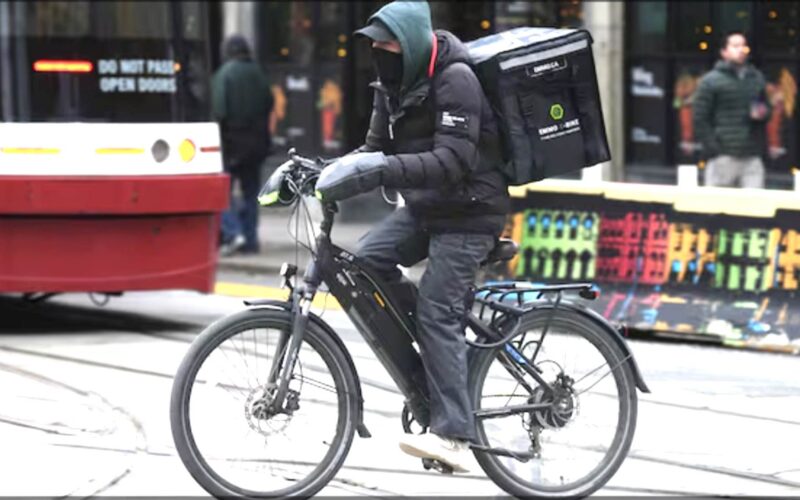I love cycling. I cycled throughout my high school years in Toronto. I cycled in BC for the decade I lived there. And I cycled from Winnipeg to Ottawa in one, unforgettable, 3,000 km trip. So, bikes on the TTC seemed like a no-brainer to me.
I was sick in bed and watching the TTC board meeting at City Hall as a lark. Then the meeting got to e-bikes, and as a cycle fan, I started to pay attention. An e-bike advocate was presenting, TTC Commissioners Josh Matlow, Diane Saxe, and others were asking questions, and it got into policy details. The gist being, if Metrolinx allows certified e-bikes on board, why does the TTC want to ban all e-bikes?
Matlow opened up questions to Interim Fire Chief Larry Cocco. That’s when Cocco dropped a bombshell on the meeting. He said, when the lithium-ion batteries on these e-bikes fail, they go up in flames that no fireman can put out. “Because of Lithium-ion battery technology, we cannot extinguish the fire. When it goes into thermal runaway, it is going,” said Cocco.
Cocco went on. “When they fail, they fail rapidly and quite violently. They eject cells upwards to 20 to 30 feet at times, and you have hot gases and vapours on a flame front moving across a space. Highly volatile and highly dangerous,” said Cocco.
The board discussed the e-bike that exploded last year at a TTC station. TTC Commissioner Fenton Jagdeo asked TTC staff what would have happened if that fire happened inside a subway tunnel.
“It would have been catastrophic,” answered TTC staff. Jagdeo asked, “People would have died?”
“Yes,” was the TTC’s answer.
Cocco backed up the TTC’s answer. “Without their ability to exit on the platform, there would have been critical injuries and/or possible death, indeed,” said Cocco
“Sounds like a disaster,” Jagdeo said.
These incendiary revelations changed Matlow’s and Saxe’s tone, but only a little. Matlow worried about reacting without “figuring out how to make all this work,” and Saxe said, “Having the TTC — based on incomplete information, inadequate consultation and some fear of the unknown — saying ‘Damn, we’re going to stop all that’ right now seems incredibly unwise.”
In the end, the TTC’s e-bike ban was postponed until the TTC could look at questions about how an e-bike ban would affect equity-seeking groups.
The Chair of the TTC board, Jamaal Myers, asked what impact the ban would have on e-bike couriers who are mostly racialized.
That’s the same question New York City is facing.
Like Toronto, NYC’s couriers are also racialized, but they’re also nearly unionized. Their answer to the problem of exploding batteries is to have enclosed charging stations on the street, outside residences and outside their public transit system. They can charge up and keep riding outside, keeping the danger away from crowded spaces.
It’s New York’s answer for a dangerous situation that doesn’t put e-bike couriers out of jobs.
As a cyclist, I can see that e-bikes make sense to people with mobility issues, or couriers who work all day on these bikes. But it also seems clear that the technology hasn’t proven itself to be fail-safe. And it’s shown itself to be incredibly dangerous when it does fail. And how did we all become guinea pigs in the experiment of these unregulated e-bike lithium-ion batteries?
We don’t need to be divided on e-bikes. We just need them to be properly regulated to protect us all.






